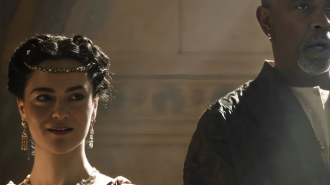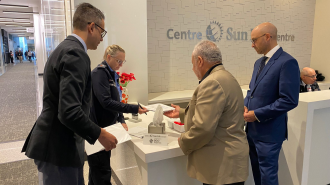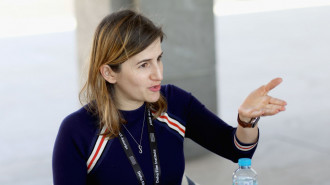Disney's new Eid film is exactly what the Muslim community needs right now
The main character, an eight-year-old girl named Ameena, wants to celebrate Eid, but it's not recognised as an official holiday in the country. As a result, she takes it upon herself to create a petition and start a campaign in order for Eid to be recognised as an official holiday in the US.
The news of a Disney film with a Muslim protagonist will surely be met with much excitement and anticipation from the Muslim community - a group who have in the past been largely misrepresented in mainstream media, films and TV. And with casting underway, one can only hope that Disney gives the role to a BAME actress, something that is also hugely lacking in film and television.
Normalising stereotypes
This isn't the first time Disney has attempted to represent Middle Eastern and Muslim characters. Last year they released a live action version of Aladdin which was met with both glee and scepticism by Muslim viewers.
The casting of Aladdin and Jasmine in particular caused controversy following reports that the studio struggled to find Arab actors who could act and sing. They were further criticised when they cast British-Indian actress Naomi Scott over a Middle Eastern actress.
 |
The new Disney film will be met with excitement and anticipation from the Muslim community - a group who have been misrepresented in mainstream media, films and TV |  |
In a further blow to Hollywood, actor Mena Massoud who played Aladdin revealed that despite being the lead in a blockbuster film he still couldn't get an audition. In a candid interview with The Daily Beast, Egyptian-born Massoud said: "I want people to know that it's not always dandelions and roses when you're doing something like Aladdin. 'He must have made millions. He must be getting all these offers.' It's none of those things. I haven't had a single audition since Aladdin came out."
The Council on American-Islamic Relations also warned that releasing a film like Aladdin "during the Trump era of rapidly rising anti-Muslim, anti-immigrant and racist animus only serves to normalize stereotyping and to marginalize minority communities."
Marcus Flemmings, Director of BAME, a talent and model agency for black, Indian and Asian models argues that Disney still needs to do more to ensure they are accurately representing minority groups.
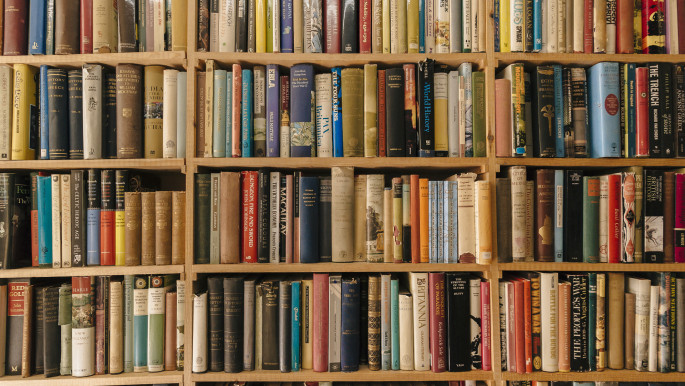 |
|
| Read more: Muslim women writers who are changing the narrative one book at a time |
"The film industry is a bit of a lost place at the moment," he told The New Arab. "Disney has engulfed the market. They have a huge market share of the industry, so the quality of films being made is poor.
"The problem is that superhero movies dominate the market and more Disney remakes are being churned out, which is squeezing the market, leaving us with less roles in big films for people of colour."
The small screen
Then there's Netflix. Spanish teen soap 'Élite' attracted praise for featuring an Arab actress as one of its lead characters. But this excitement quickly dissipated when the character was coerced into removing her hijab in an act of 'female empowerment'.
Writer and editor of 'It's not about the Burqa' Mariam Khan hit out saying: "My main source of frustration is the writers – none of whom are Muslim women. I want to know when the stereotypes around Muslim women on TV will end. When they're depicted onscreen, there's always either oppression or terrorism involved."
Box office flops
The film industry, Hollywood and Disney in particular, also regularly attract criticism for casting more well-known Hollywood actors in BAME roles. The counterargument is that it can make a film more commercially viable, but historically these types of films have gone on to become box office flops.
Take Ghost in a Shell for instance - the film sparked controversy for casting Scarlet Johannsen as a Japanese protagonist and went on to be a box office flop. Other examples include The Prince of Persia, Death Note, Iron Fist, Alotha and Airbender, all of which have been financial failures.
 |
The film industry, Hollywood and Disney in particular, regularly attract criticism for casting more well-known Hollywood actors in BAME roles |  |
In contrast, films with an ethnic minority lead protagonist have gone on to become critically acclaimed and successful at the box office - Slumdog Millionaire and Crazy Rich Asians to name a few.
"I did see Ghost in the Shell and aside from it being culturally offensive, it was my worst experience of watching a film at the cinema," adds Flemmings.
A change in the tide?
However, Flemmings argues that times are changing and opportunities are opening up: "I've seen the tide change over the past three years and Harvey Weinstein is a contributing factor for this.
"The big revelation that he was bullying and sexually mistreating actresses allowed others to come out and speak about alleged sexual abuse situations. Now women are the forefront of creative decisions. executive power and conversation."
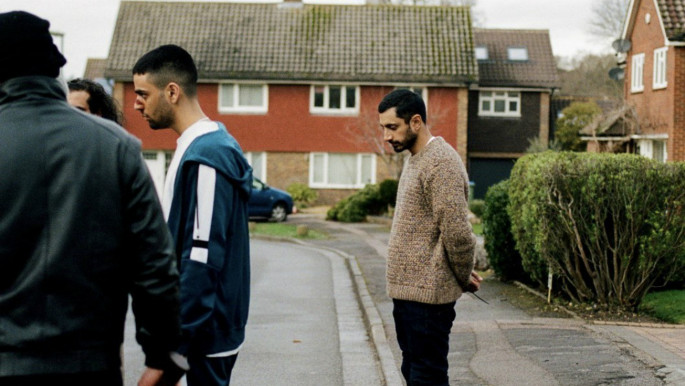 |
|
| Read more: Why Riz Ahmed's short film on Islamophobia is a call to action |
He adds: "It's also allowed for dialogue about tolerance and diversity to be heard properly. Now we are seeing more LGBTQ campaigns and more roles within films for people who are diverse and represent the 'modern world'. It's not perfect, but it's getting much better and we're moving in the right direction."
Film revolution
However, it's not all bad news as Flemmings explains: "Film is going through a major revolution. The amateur filmmaker who used to have to wait for a major studio to snap them up doesn't have to anymore. They can now make their own films for low budgets and get distribution, which means that diversity has increased by default."
Moving away from Hollywood, Flemmings believes that the change will begin in television: "Most quality-based content is now on TV - and if you look at the US there is a good range of diversity."
Passing 'The Riz Test'
In a speech delivered at the House of Commons back in March 2017 actor Riz Ahmed said: "What people are looking for is a message that they belong. Every time you see yourself it's a message that you matter, that you're part of the national story."
Inspired by the speech, researchers created 'The Riz Test', which seeks to quantify the extent to which films perpetuate negative stereotypes of Muslims as violent, extreme or superstitious. Based on five criteria, films either pass or fail the test.
 |
Most quality-based content is now on TV - and if you look at the US there is a good range of diversity |  |
Any film with at least one identifiably Muslim character can be put to the test, by asking if the character is:
- Talking about, the victim of, or the perpetrator of terrorism?
- Presented as irrationally angry?
- Presented as superstitious, culturally backwards or anti-modern?
- Presented as a threat to a Western way of life?
- If the character is male, is he presented as misogynistic? Or if female, is she presented as oppressed by her male counterparts?
If the answer to any of the above questions is yes, the film has failed the test. The problem is that most, if not all mainstream films and TV shows with a Muslim character will likely fail the test. Take the BBC's hit series The Bodyguard for instance. Researchers found that the series failed the test in the first twelve minutes.
The question is, will American Eid, follow suit, or could it pass? With Kuwaiti-born Aqsa Altaf directing the film, the hope is that it will. Altaf, who is of Pakistani and Sri Lankan heritage, draws many parallels between the film and her own life. Like her main character, she too moved to the US in search of a better life.
Growing up with many cultures around her has also given her an appreciation for diversity and positive representation. "I am blessed to have been raised in a multicultural household," she says. "And I have known people from a wide range of backgrounds, cultures and religions."
Sami Rahman is a freelance lifestyle writer based in London.
Follow her on Twitter: @bysamirahman







 Follow the Middle East's top stories in English at The New Arab on Google News
Follow the Middle East's top stories in English at The New Arab on Google News
